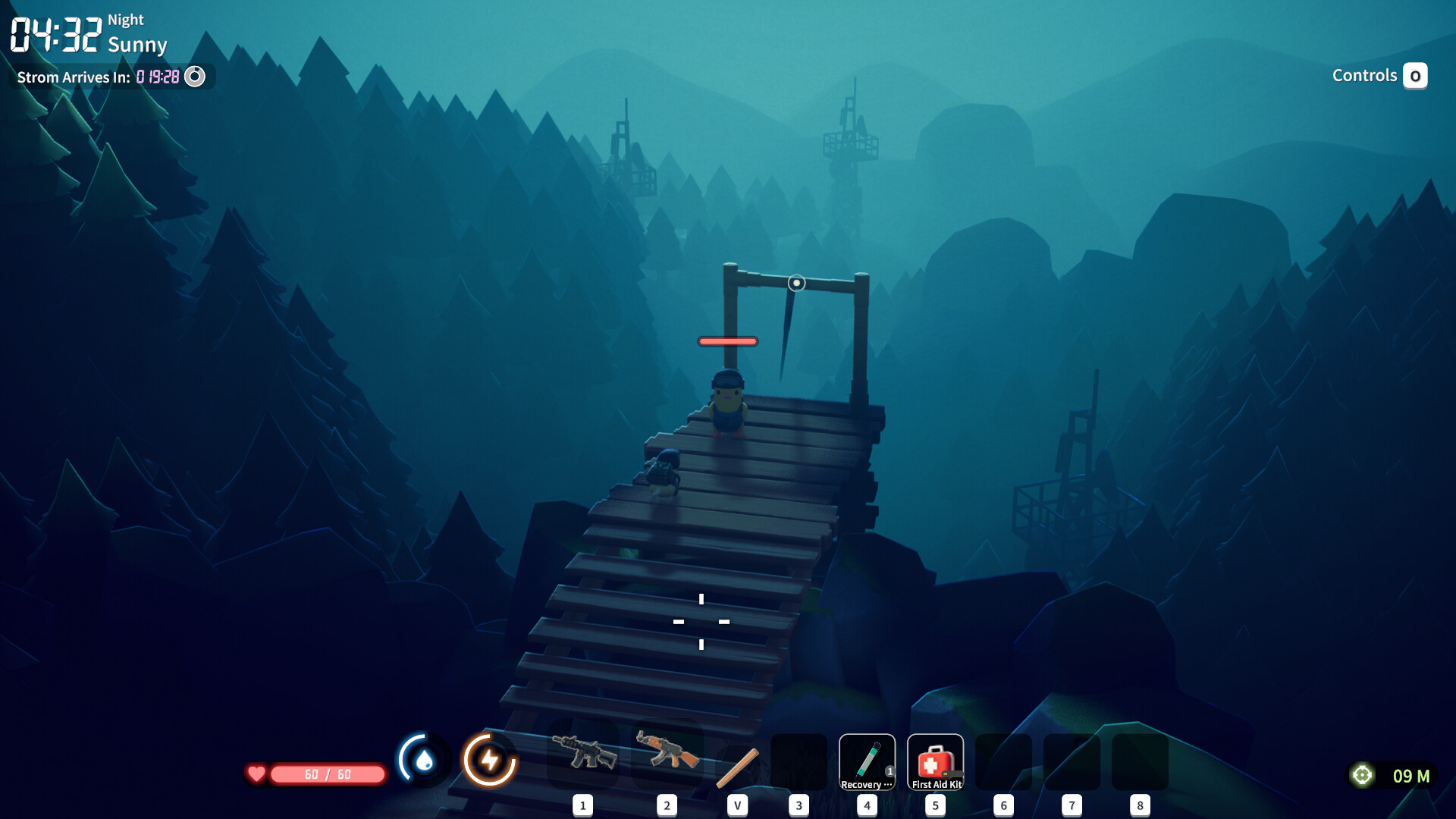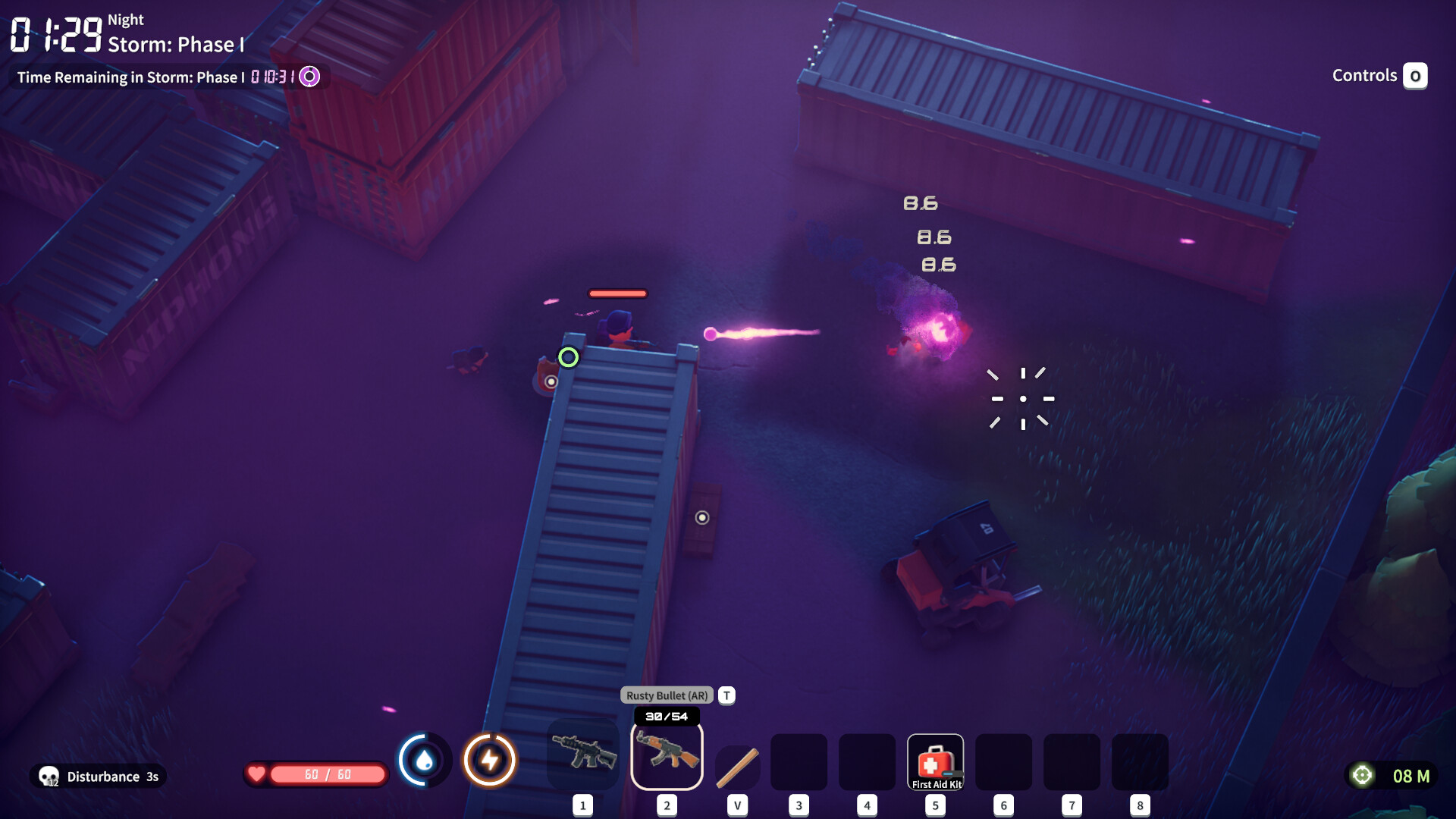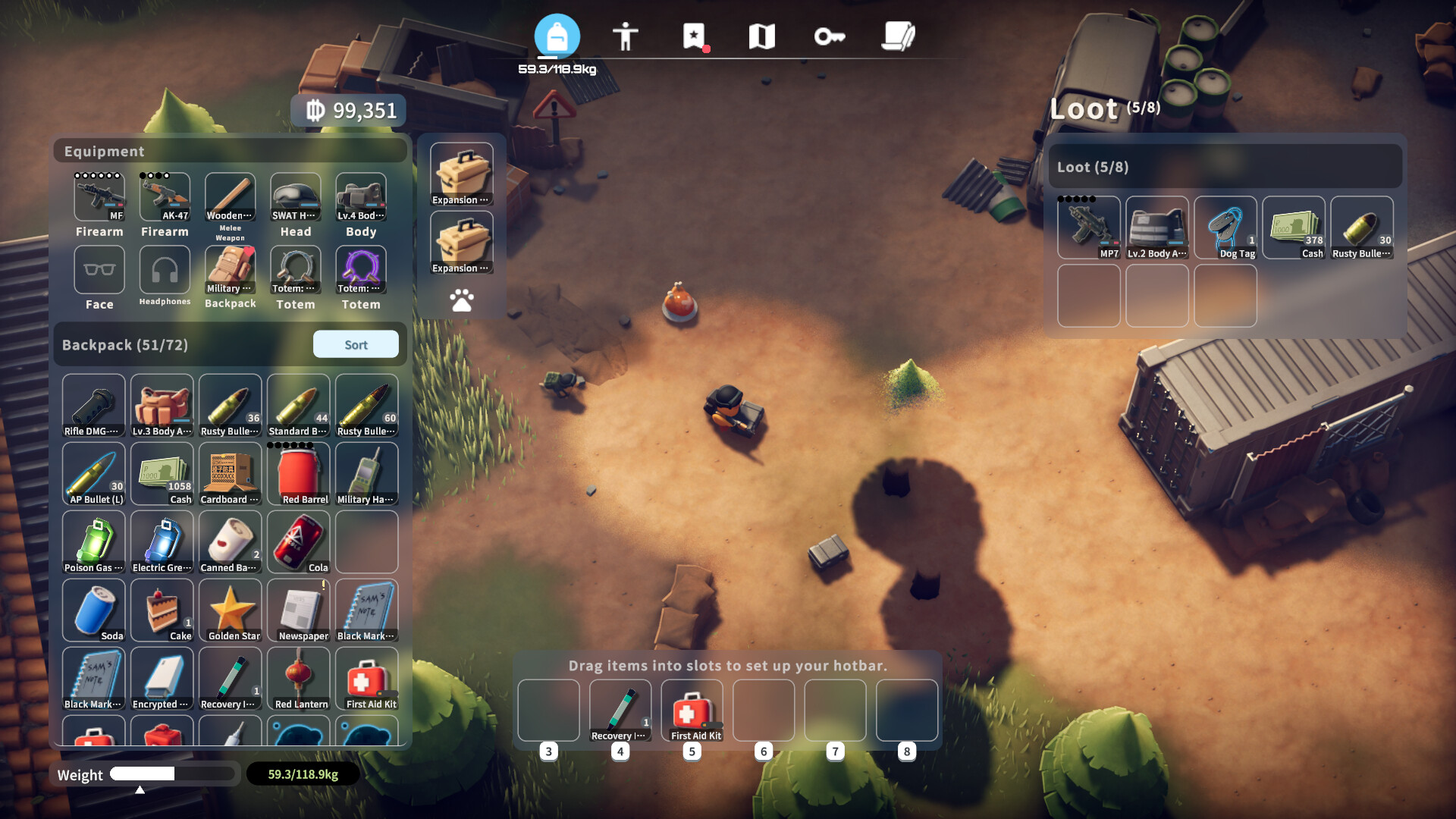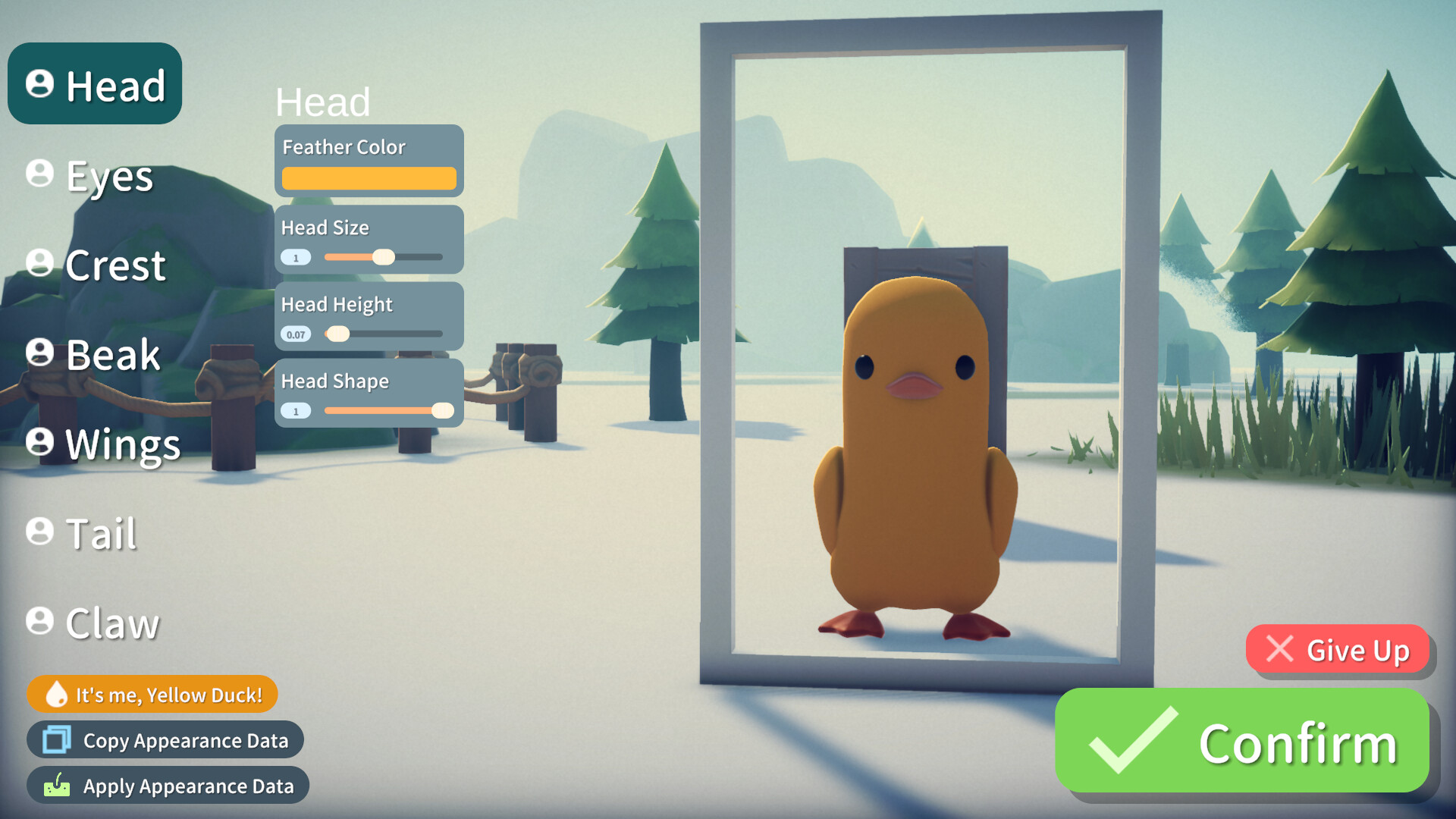At first glance, Escape from Duckov from Team Soda (Bilibili) seems like a topical meme, another “killer duck” riding the wave of hype surrounding someone else’s brand. One second it is here, another it is forgotten in the bin of history.
However, behind this multi-layered façade of irony and parody, lies something more—a fully-fledged, meticulously crafted manifesto addressed to the entire extraction shooter community and devs. This isn’t just a joke at the expense of Escape from Tarkov, but a bold experiment that has grown into a worthy standalone product for many players, making them question whether the genre is heading in the right direction.
The plot is deliberately simple and comical: you are one of the ducks left on the planet Duckov, which is being engulfed by a mysterious space storm. Your goal is to find a way to escape before it’s too late.
How can such a simple parody contain a serious message? Read on to find out, this is our Escape from Duckov PC review.
The cartoon-like visual style and duck-like characters create a profound sense of playfulness and unseriousness. But it’s precisely this approach that allows the developers to pursue bold design experiments that might have been too much for a project that takes itself too seriously.
Criticism through simplification is Team Soda’s primary tool. Take the “Bronze Watch” quest, a cult favorite among Tarkov fans. In the original, it’s a multi-hour quest that requires searching for keys, accessing secret locations, and, of course, a successful escape afterward. In Duckov, however, it’s a matter of minutes: the key is purchased from a nearby vending machine, and the watch itself is found at the exit of the location.
This isn’t a simplification for the sake of a casual audience for Tarkov wannabe, available for everyone, but rather a clear demonstration of how excessive, sometimes artificial, complexity can hinder the essence of the genre. Almost every element borrowed from Tarkov (vendors, bosses, the quest system even) is subjected to a similar “humorous analysis,” revealing its strengths and weaknesses through a parody.
Escape from Duckov is not a clone, but a masterfully-created hybrid that has absorbed and reimagined the best features of various genres and adapted them for the single-player PvE format.

When it comes to the extraction-shooters like Tarkov, the game borrowed the very core and backbone of the genre, the “raid – survival – base” cycle. First, players enter a location, collect loot (paperclips, lightbulbs, eggs instead of what you’d expect), fight enemies, and attempt to safely evacuate.
Losing loot upon death adds a key element to gameplay, a feeling of danger and the adrenaline that comes with risk.
Meanwhile, the locations live their own lives. Enemies patrol the territory, engage in firefights with each other, and react to noise and movement. The day/night cycle and weather conditions (including deadly space storms) change the familiar rules, forcing you to select specialized equipment.
The game offers 5 maps, from medium to huge, with multiple levels and a ton of secrets.
You all know what is the most important thing in extraction-shooters: loot. For special quests, loot will be in specific locations, but everything else is completely random. The starting location has a basic loot tier, and then it continuously increases. The best upgrades and expensive items can be found on the latest maps, as well as the most powerful equipment, but still… you can also get a simple starting gun in the most secret and distant chest.
Doesn’t that make you recall breaking all your lockpicks only to get a couple of tomatoes from a chest at the bottom of TES: Skyrim dungeon?

But the extraction-shooters were not the only genre that had inspired Escape from Duckov, many of the familiar elements hail from elsewhere. Such as the souls-like games and their familiar beacons/campfires serving at the quick travel system.
Additionally, upon death, the player can return to their death spot and retrieve all lost items. Failure to do so results in permanent loss. This creates a tense but fair challenge, especially when it comes to boss battles with unique enemies like “Vida” (a parody of Killa) that rely on precise dodging, stamina management, and learning attack patterns. Equipment weight directly impacts mobility, too, so make sure not to overload!
The game also masterfully utilizes and baits players with the “just one more raid” principle. Returning to base, the player constantly sees opportunities for improvement. You can also expand your Vault by building an armory, a kitchen, a medical station, a gym, and a research center. Each module can be upgraded, unlocking new crafts and perks.
And when it comes to upgrades, absolutely everything can be improved: the duck’s stats (health, stamina, accuracy), weapon levels, ammo quality, and storage capacity. Almost any weapon can be customized: attach a scope, replace the magazine, get a flashlight, melee weapons have their own enhancements.
As you go through the game and see your items becoming better, you constantly catch yourself feeling like, “Now I’ll just gather a few more resources and unlock that cool thing!” This cycle draws you in for dozens of hours at a time.

Despite Duckov’s cartoonish aesthetic, the gameplay systems are surprisingly well-developed. The top-down/isometric perspective doesn’t necessarily mean arcade-style play. Each weapon has its own recoil, spread, reload time, and effective range. There’s also an armor penetration system: headshots guarantee increased damage, but the final damage depends on the enemy’s armor and the bullet type.
And when it comes to the enemies, they don’t just run at the player. They use cover, throw grenades in narrow corridors, attempt to flank, and some elite fighters can even teleport short distances. Different factions (marauders, mercenaries) fight among themselves, creating unpredictable situations on the map.
Additionally, the five main locations aren’t just a collection of arenas connected by corridors, but cohesive, multi-level spaces with secrets, vertical planning, and hidden paths. The ability to blow up damaged walls, opening up permanent passages, adds a sense of real impact.
Duckov’s success was astounding: over 500,000 copies sold in three days and a peak online player count of nearly 200,000 on Steam. This surge is no coincidence and speaks to deep-seated trends in the genre.
The ducks offered the long-suffering community a temporary escape from the usual pain in the ass. The community has been loud about being tired of Tarkov’s artificial difficulties, often disguised as “hardcore.” The clunky Tetris-like interface, quests that can barely be understood without external wiki guides, and the total dominance of experienced players over newcomers—all of this created a long-standing barrier.
Meanwhile, Duckov smashed this barrier, offering a controlled, predictable, and time-respecting experience. You only lose loot through your own mistakes, not because of a sniper sitting in the bushes for 20 minutes.
For years, Tarkov fans have been asking for a fully-fledged PvE mode. Duckov delivered it to them out of the box. Players were finally able to immerse themselves in the meditative cycle of collecting loot and leveling up their base, without the constant stress and frustration of PvP interactions.

The parodic style was a brilliant move, and the irony became the game’s most powerful weapon.
It allowed the developers to simplify and visualize complex systems without raising accusations of “casualism” and “handholding” from hardcore audiences. “We’re ducks, we can afford it!”—this attitude disarms criticism.
Escape from Duckov is a rare phenomenon in the gaming industry. It’s a parody that, in most respects, doesn’t simply mock the original, but offers a viable, and in some ways superior, alternative. It fulfilled the role Fortnite once played in relation to PUBG.
Cartoonish, technically stable, and user-friendly, Fortnite reimagined the battle royale genre and attracted a multi-million audience. Likewise, Duckov clearly demonstrated that the core of the extraction shooter genre—loot collection, risk, and deep leveling—can exist without the burdensome, sometimes toxic, mechanics.
The game proved that players want more than just “suffering for the sake of suffering”, but rather to engage in meaningful progress, feeling their efforts gradually transform a pathetic duck with a stick into a mighty hero capable of dictating their terms across the vastness of Duckov.



